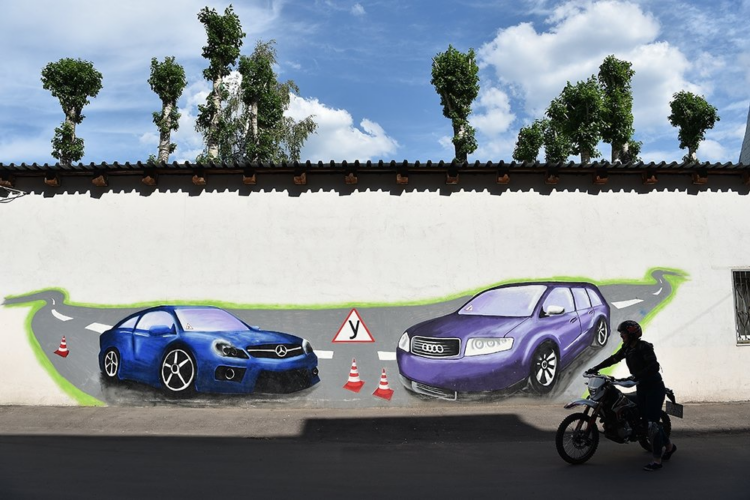Russians will be able to study at driving schools remotely
Published: by .

"RG" already reported on this project when it was put up for public discussion. The main news was that it became possible to provide distance learning for driver candidates. At that time, it was perceived as an opportunity to reduce the cost of training. But this is not so.
As explained by the head of the Interregional Association of Driving Schools Tatyana Shutyleva, the legislation on education clearly spells everything out. The remote mode does not at all provide for just watching lectures. This is a full-fledged lesson, in which the teacher sits in the classroom at a computer equipped with a camera and microphone. He conducts it for those who are physically present in the classroom and for those who are "remotely". Any student can ask a question and get an answer. Attendance and academic performance are recorded. Thus, the teacher works off his rate on the spot. And it is convenient for students.
The document underwent public discussion, the Ministry of Education made adjustments to it in accordance with the requests. Now it has been sent for regulatory impact assessment.
What are the main adjustments made to it? First of all, this is practical training, both in educational and specialized organizations. We are talking about vehicle fleets and transport plants. Such training will be especially useful for those who went to study to become a driver in order to work as one later. That is, to drive trucks and buses. But it also concerns those who want to work as a taxi driver. According to Tatyana Shutyleva, the new approach to training will be interesting for both employers and future drivers. After all, drivers have long been in short supply. And so the transport company will be able to qualitatively prepare future personnel. At the same time, a person will delve into the practical aspects of driving a particular vehicle, as well as the work itself, with all its intricacies, including paperwork.
– This is immersion in a professional environment, – says Tatyana Shutylyova. – After all, everyone knows that those who study a foreign language among its native speakers master it much easier. The same is true here. And the future driver receives professional skills. I study where I will work.
Besides, there is such experience. After all, tram and trolleybus drivers have long been trained in tram depots and trolleybus parks. Since no driving school can lay rails or hang wires, much less purchase such transport to train drivers of this transport. So why not extend this practice to other types of motor transport?
Requirements for driving instructors and assessment of the capacity of driving schools are also being introduced. All this is aimed at combating fictitious training and, allegedly, educational institutions.
So, according to the project, during a driving lesson, the master must have a lot of documents with him. Namely: a copy of the document for the right to teach driving a vehicle (a document on education and qualifications corresponding to the profile of pedagogical activity, and in the absence of education in the pedagogical profile – a document on education and qualifications and a diploma of professional retraining in the profile of pedagogical activity). Of course, a driver's license for the right to drive a vehicle of the corresponding category or subcategory. And also a document that the student is studying in a particular driving school according to the appropriate program.
According to the expert, this innovation appeared to protect future drivers from all sorts of third-party "do-it-yourselfers" who promise to quickly and inexpensively teach them how to drive a car from scratch.
As for the workload of driving schools, this requirement works rather poorly today. Some so-called driving schools rent sites. As a result, several dozen companies can work on one site at the same time. And some rental agreements are completely fictitious. Thus, the State Traffic Safety Inspectorate, which issues a conclusion for the work of a driving school, has a real verification mechanism. After all, each site has its own workload, which it cannot exceed.
Another nuance is the assessment of the workload by the number of cars. A car, of course, can work around the clock. But a teacher, whose working hours are fixed by law, cannot do this.
The project now allows two driving masters to be assigned to one car. Thus, the capacity of driving schools will increase. And accordingly, the availability of driving training will increase. And given the current shortage of drivers, this is only a blessing, the expert believes.
Comments